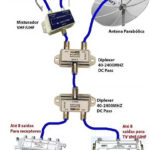-
Mourad ELGORMA posted in the group Network engineers
What is the Internet Control Message Protocol (hashtag #ICMP)?
The Internet Control Message Protocol (ICMP) is a network layer protocol used by network devices to diagnose network communication issues. ICMP is mainly used to determine whether or not data is reaching its intended destination in a timely manner. Commonly, the ICMP protocol is used on network devices, such as routers. ICMP is crucial for error reporting and testing, but it can also be used in distributed denial-of-service (DDoS) attacks.
What is ICMP used for?
The primary purpose of ICMP is for error reporting. When two devices connect over the Internet, the ICMP generates errors to share with the sending device in the event that any of the data did not get to its intended destination. For example, if a packet of data is too large for a router, the router will drop the packet and send an ICMP message back to the original source for the data.
A secondary use of ICMP protocol is to perform network diagnostics; the commonly used terminal utilities traceroute and ping both operate using ICMP.
How does ICMP work?
Unlike the Internet Protocol (IP), ICMP is not associated with a transport layer protocol such as TCP or UDP. This makes ICMP a connectionless protocol: one device does not need to open a connection with another device before sending an ICMP message. Normal IP traffic is sent using TCP, which means any two devices that exchange data will first carry out a TCP handshake to ensure both devices are ready to receive data. ICMP does not open a connection in this way. The ICMP protocol also does not allow for targeting a specific port on a device.
What is an ICMP packet?
An ICMP packet is a packet that uses the ICMP protocol. ICMP packets include an ICMP header after a normal IP header. When a router or server needs to send an error message, the ICMP packet body or data section always contains a copy of the IP header of the packet that caused the error.
Destination Host Unreachable
This message indicates one of two problems: either the local system has no route to the desired destination, or a remote router reports that it has no route to the destination.
If the message is simply “Destination Host Unreachable,” then there is no route from the local system, and the packets to be sent were never put on the wire.
If the message is “Reply From : Destination Host Unreachable,” then the routing problem occurred at a remote router, whose address is indicated by the “” field.
Request Timed Out
This message indicates that no Echo Reply messages were received within the default time of 1 second. This can be due to many different causes; the most common include network congestion, failure of the ARP request, packet filtering, routing error, or a silent discard.
hashtag #ping hashtag #ICMP hashtag #IT
Groups
Recent posts
ADDRESS
Algeria
Website
Phone Number
+213790299296
Media
Photos
Videos
Audios
Files











